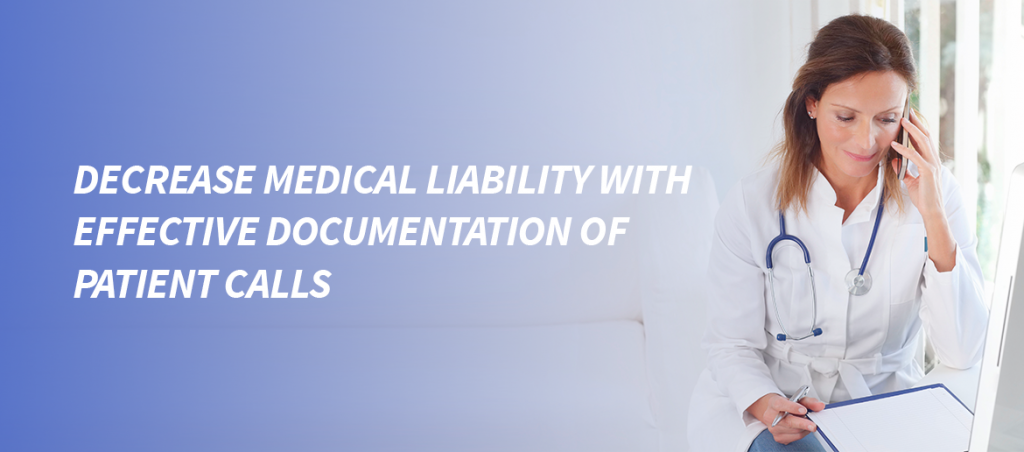Decrease Medical Liability with Effective Documentation of Patient Calls
By Charu Raheja, PhD
Many patient interactions begin with a phone call. Often, physicians and medical professionals provide medical care and instructions to patients over the phone. Unlike office visits, there is often a lack of documentation of the communication between the healthcare provider and patient. If there is a misunderstanding or a negative patient outcome, this can lead to malpractice suits against physicians.
Malpractice is legally defined as negligence, misconduct, lack of ordinary skill, or a breach of duty in the performance of a medical professional, resulting in injury or loss.
Some of the most common types of malpractice claims include:
- Failure to follow care standards.
- Failure to communicate.
- Failure to document.
- Failure to assess and monitor a patient.
The effects of poor record keeping
A common factor among most claims is inadequate or missing documentation, pointing to the importance of proper documentation. Documenting patient phone calls is a step that is easily and frequently overlooked in the medical office or during after-hours calls. Busy clinicians and office staff are often rushed, and sometimes handle phone calls without documenting all the details. Patients are sometimes forced to follow up, when messages are lost due to poor record keeping. This is frustrating for the patient and the person taking the call, and also could result in delayed or overlooked care.
Taking careful patient documentation notes over the phone is a vital step to ensuring the best in patient care and to protecting your practice from malpractice suits. Unless you record your telephone calls with patients, there really are no other records of your interaction.
What can nurse triage do to decrease these errors?
While physicians are certainly experts at what they do, during the day it is impossible for them to talk to every caller while still attending to their patients with appointments. In addition, after hours, when they are away from the office, it is difficult to document every phone call.
Having a nurse triage system in the office, such as the myTriageChecklist®, to utilize standardized protocols and patient documentation tools during the day, can decrease the burden on the providers, while safely taking care of patients. When the office is closed, a highly trained and dedicated nurse triage call center, like Nurse Triage on Call™, can help get patients to the proper level of care, at the correct location, at the right time, and document the interaction.
While triage nurses do not diagnose patients, they provide appropriate care advice, given each patient’s symptom. Nurses gather relevant information from the patient, including a detailed medical history, in order to pair signs and symptoms with the proper protocol and disposition. Then, the nurse is able to offer professional insight to patients, as appropriate.
Just some of the benefits of using nurse triage include:
- A reduction in unneeded repeat calling.
- A reduction in unnecessary clinic visits.
- An increase in compliance rates.
- Increased patient satisfaction.
- Accurate and adequate documentation of all communication with patients.
Your office’s telephone service is an extension of your practice, and it’s important to treat it that way. A quality nurse triage system is good for patients because they receive better customer service and efficiency of care. The benefit for physicians is smoother communication between patients and healthcare providers, and a tangible record in case anything comes up again in the future.
Have other ideas on how to document effectively? Please leave us a comment.
What to Read Next : The Importance of Asking and Receiving an Accurate Past Medical History when Evaluating Patients over the Phone (PMH)





